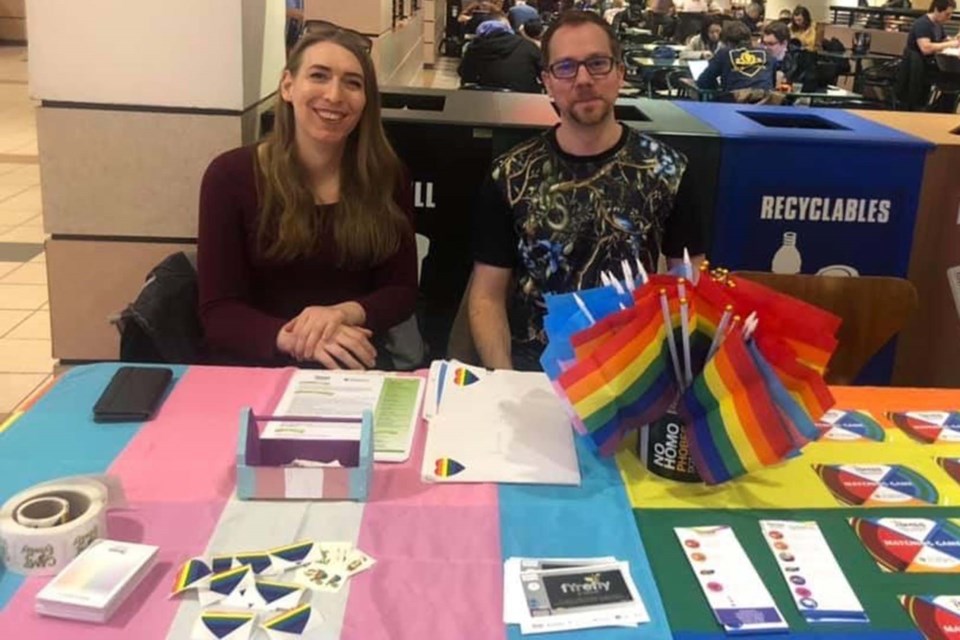Alex Marshall grew up in the small town of Joffre, Alta., and being transgender didn’t make life easy for the young kid.
Marshall now runs a program through the University of Alberta’s Institute of Sexual Minority Studies and Services where she does outreach training in rural schools across the province.
“If I had somebody like me when I was a kid, I can't imagine how it would have changed my life,” Marshall said.
The educator said when she was younger, she didn’t feel like there was a place for her in the town of 170 people and felt she would have to leave the community to live her life authentically.
The program Marshall now runs started in 2020, right before the pandemic hit, but in the past two years, Marshall and her program partner have talked to students in 50 or 60 schools and a similar number of community organizations across the province.
Schools will reach out to Marshall who then works with teachers to help establish what an inclusive classroom looks like and then helps them navigate any challenges that might come up in the classroom.
Some teachers struggle with knowing how to address some issues they may see as concerning in their classrooms.
“[Teachers] want to work on things, but they are scared they are going to say the wrong thing or do the wrong thing, so they need some encouragements and somebody to talk to and ask those questions to,” Marshall said.
After talking with teachers, Marshall will give presentations to students and talk about identity and give them terms to understand different gender and sexual orientations. Marshall will often visit the Gay Straight Alliance (GSA) in the school, if the school has one, or even talk to the Parent Teacher Association.
“It can be a good way to meet them where they’re at and [recognize] that maybe they haven’t had these kinds of conversations before,” Marshall said.
The educator said that schools are a microcosm of the communities they are in, and it isn’t just a one-way street. Students can also impact the community they are in, and Marshall often does presentations for the wider community and its members.
In rural communities, there can be unique challenges members of the LGBTQ+ community may face, including lack of access to other supports in their town.
“I’ve definitely seen some of those rural schools that have amazing supportive things for their kiddos and it's just fantastic for them” Marshall said, noting that not every school has that support.
In a small town there aren’t resources like the Pride Centre in Edmonton and there is just less opportunity to build community outside of the school that is exclusively queer and trans exclusive, Marshall said, “whereas in a smaller community that's less likely to exist,” which makes kids feel like their GSA might be the only place where they can be around other people who understand them.
Marshall said she would never want to give the impression that rural schools aren’t as inclusive, but there is research that LGBTQ+ students in rural schools can face a more hostile school climate and are less likely to have school resources and support than in urban schools. Research also shows that teachers in smaller communities are less likely to consider their schools safe for their LGBTQ+ students.
Another challenge rural students may face is a community that believes LGBTQ+ people are more of an urban thing. Rural community members may say they are totally accepting of the LGBTQ+ community, but then say none of them live in the local community, which Marshall said is not possible.
“I love our small towns. I want I want them to be beautiful and amazing with something for everybody,” Marshall said.
“It's sad that young people can sometimes have the impression that their small town is not for them and that to be themselves they have to go to someplace else,” Marshall said.
Any schools who are interested in bringing Marshall and her team to host events can contact her through the University of Alberta’s fYrefly in Schools Rural Alberta website.



